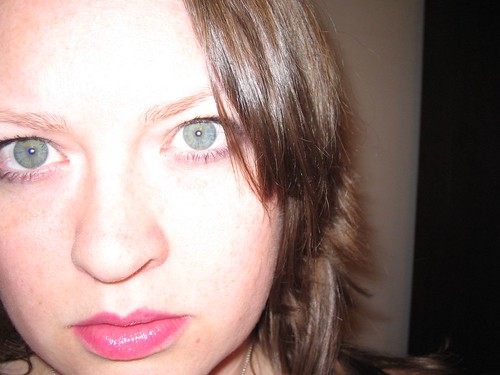 Tall, Dark, and Dead
Tall, Dark, and Dead, by Tate Hallaway (2006)
Last year, I read Halloway's
Dead Sexy, the second Garnet Lacy book. I finally got around to reading the first. This was more of an adventure than I expected. I requested the book from a partner library and didn't read it right away when it came in because I always go on sprees and order several at a time. Then, I realized it was coming due soon and I couldn't find it anywhere, so I renewed it and hoped I'd run across it at home or in my office, but hoping I didn't do something stupid like take it with me to Midwinter and leave it in the hotel or on a plane somewhere. When the renewal was finally up, I still couldn't find it and just paid the replacement fee so I wouldn't have a block on my account.
Of course you know what happened. I moved offices a couple of weeks later and found the book wedged beween my desk and the wall, suspended in the air. I hadn't been able to see it when I crawled around the floor and rummaged through every stack of paperwork and books in the office, so I had thought it was gone for good. But, to make a long story a tiny bit shorter, I quickly read the book before turning it in for a refund of my fine.
I have to say I really like these books. The treatment of wicca, while very much magical in the spells and possessions kind of witchcraft, is still pretty respectful to the religion. The characters are interesting, and nobody's all good or all bad. Garnet, the main character, could easily go wrong, but she feels pretty real to me. She makes mistakes and hooks up with (the wrong) guys too quickly, and she doesn't always get what she wants. I like her. It's chick lit in the best sense of the term. I'm trying to get over that label, and was happy to read
this in a Q&A with Jennifer Weiner she posted to
her blog today:
The good news is, no matter how the publishers and booksellers label the books, and what the critics say (that’s if they bother to say anything at all), readers know what they’re getting with quote-unquote chick lit. They know they’ll laugh, they know they’ll identify with the heroine and her dilemmas, they know her voice will be familiar and that her story will end well. And if that’s what chick lit is, I don’t think it’s so terrible, or so dangerous.
Right on. I read more so-called chick lit and young adult lit than most other stuff, and that's okay. More "serious" stuff is great, but I don't always feel like it, especially these days when I'm reading about research methods, pedagogy, and library trends and services all day long. Sometimes I just want something fun to curl up with in the evening. The Garnet Lacy books really do the trick.






























